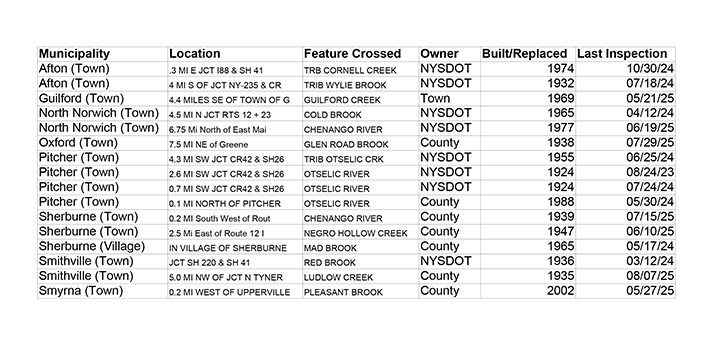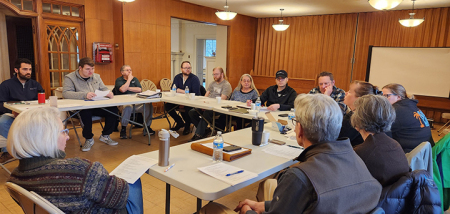Farm Labor Wage Board Hearings
Published:
March 4th, 2020
By:
Joe Angelino
While Bail Reform and Evidence laws are getting a lot of attention, another recently enacted legislation, the Farm Laborers Fair Labor Practices Act, is getting a second look at contemplated changes, specifically how overtime is paid to farm laborers. Depending upon your point of view, those changes may not be for the better.
Last Friday, the New York State Department of Labor Wage Board conducted its first hearing concerning the Farm Labor law that went into effect January 1, 2020. The current issue is the threshold for overtime currently set at 60 hours. The Wage Board hearings will determine if overtime should begin after 40 hours of work.
Last year when the legislation was written, Section 674 of the Labor Law required public hearings and a review to start by March 1, 2020, on the topic of laborer’s overtime. Agricultural businesses and farmers barely had a chance to implement the law changes, and now more changes are being contemplated. More frustrating for farmers is the Wage Board hearings are starting before any data, much less long-term analysis of the new law is available. The 2020 season crops haven’t even been planted, much less harvested using farm labor employees.
The Farm Labor bill was authored last year by an Assemblymember and a Senator, both from the Borough of Queens, and it quickly passed in the downstate majority legislature. In July of 2019, the bill was signed into law by Governor Cuomo in a ceremony in the offices of the New York Daily News in Manhattan. Neither Queens nor Manhattan is known for their agricultural industry or sprawling farms and ranches.
Because the Farm Labor bill mostly impacts the agriculture industry, not everyone will be familiar with the contents, so here’s a Reader’s Digest version. It is known as the Farm Laborers Fair Labor Practices Act, and it allows for unionization of farmworkers, once prohibited by NYS law. It requires overtime pay for farm workers after 60 hours of work. Also codified is a scheduled 24 hour rest period at least one day per week. The definition of a “worker” now includes family members, outside the immediate family, and a plethora of other requirements and restrictions many of which farmers were already required to comply with in other statutes.
Agriculture is different from unionized jobs in a factory, a hotel, or an office building. First off on a dairy farm, milk is perishable, and cows don’t take a day off from production. Another difference; crops are delicate and need to be harvested when the time is right, not on a schedule set by law. Animals need care and observation that is not very easy to schedule.
The weather is a variable that no one controls or schedules. When the weather is good, farm work might go on for 15 hours that day. However, rain sometimes causes outdoor work on a farm to halt or delay, so workers don’t actually perform work during those times. Particularly frustrating in the new law, that time off for bad weather cannot be counted towards weekly scheduled rest time, which means when a beautiful day follows a rainy day, work performed might be at the overtime rate.
The New York Farm Bureau president, David Fisher, has a permanent seat at the Labor Board hearings, which is fortunate. Mr. Fisher can tell people that nearly every farm in New York is family-owned, not operated by a faceless corporation from far away. Local farmers already pay generous wages because they are in competition with other farms for the best employees. Some farms provide housing and transportation to ensure a stable workforce.
Mr. Fisher can remind everyone that previous increases in the minimum wage were a massive blow to all family farms. With margins between farm expenses and profits so narrow, paying time-and-a-half for work after 60 hours is difficult, and a knee-jerk lowering of that threshold to 40 hours is hurtful.
Farmworkers themselves fear more changes to the law would cause farm owners to schedule work spread over more employees, which means fewer individual working hours, which equals fewer dollars in pockets. A likely move toward automation and mechanization will be an option for some farms, while others may switch over to animals and crops which are less labor-intensive. All of this points to fewer employment opportunities.
Labor costs with “factory style” rules pushed on the agriculture industry will undoubtedly increase prices consumers pay at the grocery store. There will also be some farms that cannot absorb the labor costs and can’t afford new equipment to mechanize. These will be the farmers that have to call it quits adding another gut-punch to rural upstate New York.
If you want your voice heard on this matter, here is the schedule for the remaining public hearings on the Farm Laborers Fair Labor Practices Act;
Friday, 3/13/2020 Onondaga Community College, Syracuse, NY; Monday, 3/23/2020 Binghamton University, Vestal, NY; Thursday, 4/16/2020 Brookhaven Town Hall, Farmingville, Long Island, NY; Thursday, 4/23/2020 Geneseo Community College, Batavia, NY.
Go to this link for detailed information: https://www.labor.ny.gov/workerprotection/farm-laborer-wage-board.shtm.
Author: Joe Angelino - More From This Author
Comments











